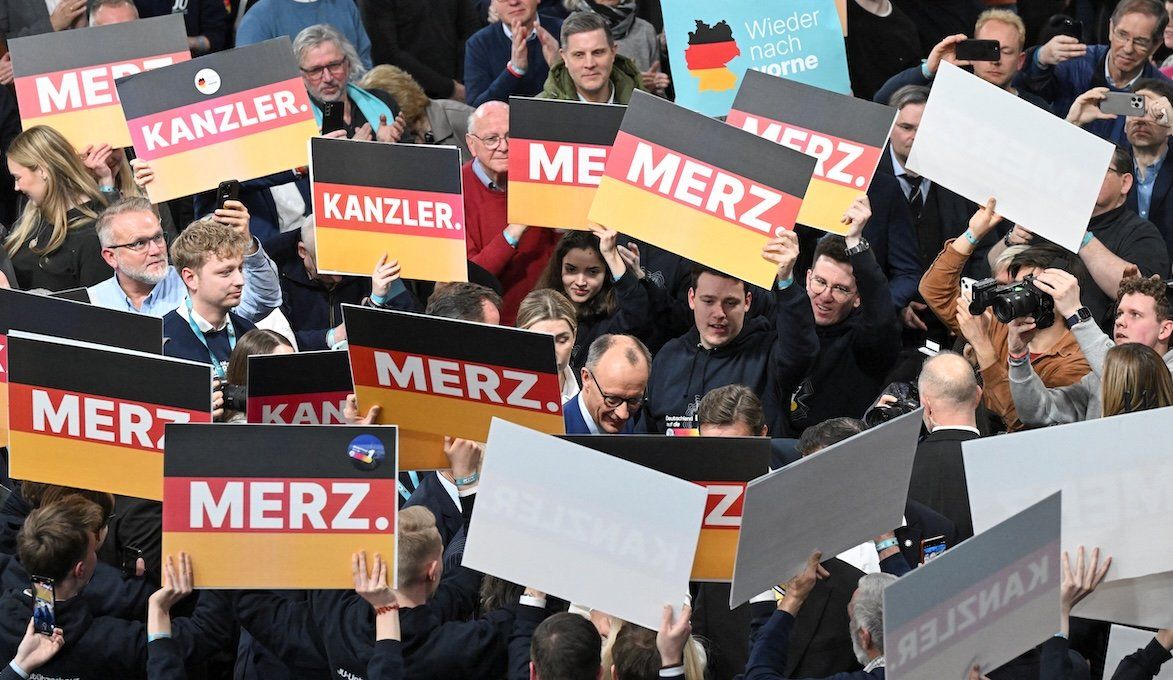German conservative CDU candidate for chancellor Friedrich Merz attends a campaign event in Vechta, Germany, on Feb. 19, 2025.
A poll of polls published by Politico.eu finds that support for the center-right CDU/CSU has fallen three points in the past three months, from 32% to 29%, while backing for the far-right Alternative for Germany, or Afd, party has risen three points over that period, from 18% to 21%. Support for the incumbent center-left SPD has been stuck near 16% for the past year.
What might change minds or help the undecided decide? According to that YouGov survey, about 27% of Germans get at least some of their political news from social media sites like X, Facebook, Instagram, and others. But that number jumps to 40% among AfD supporters and 43% for backers of the far-left party known as The Left.
The CDU/CSU is very likely to win, making Friedrich Merz the country’s new chancellor. But he’s likely to lead a coalition government with a weak mandate, in part because he has vowed to reject any cooperation with the AfD. The likeliest outcome appears to be a grand coalition between the center-right and the center-left SPD, but an 11th-hour surge in support for the AfD could force Merz to include smaller parties in his coalition.